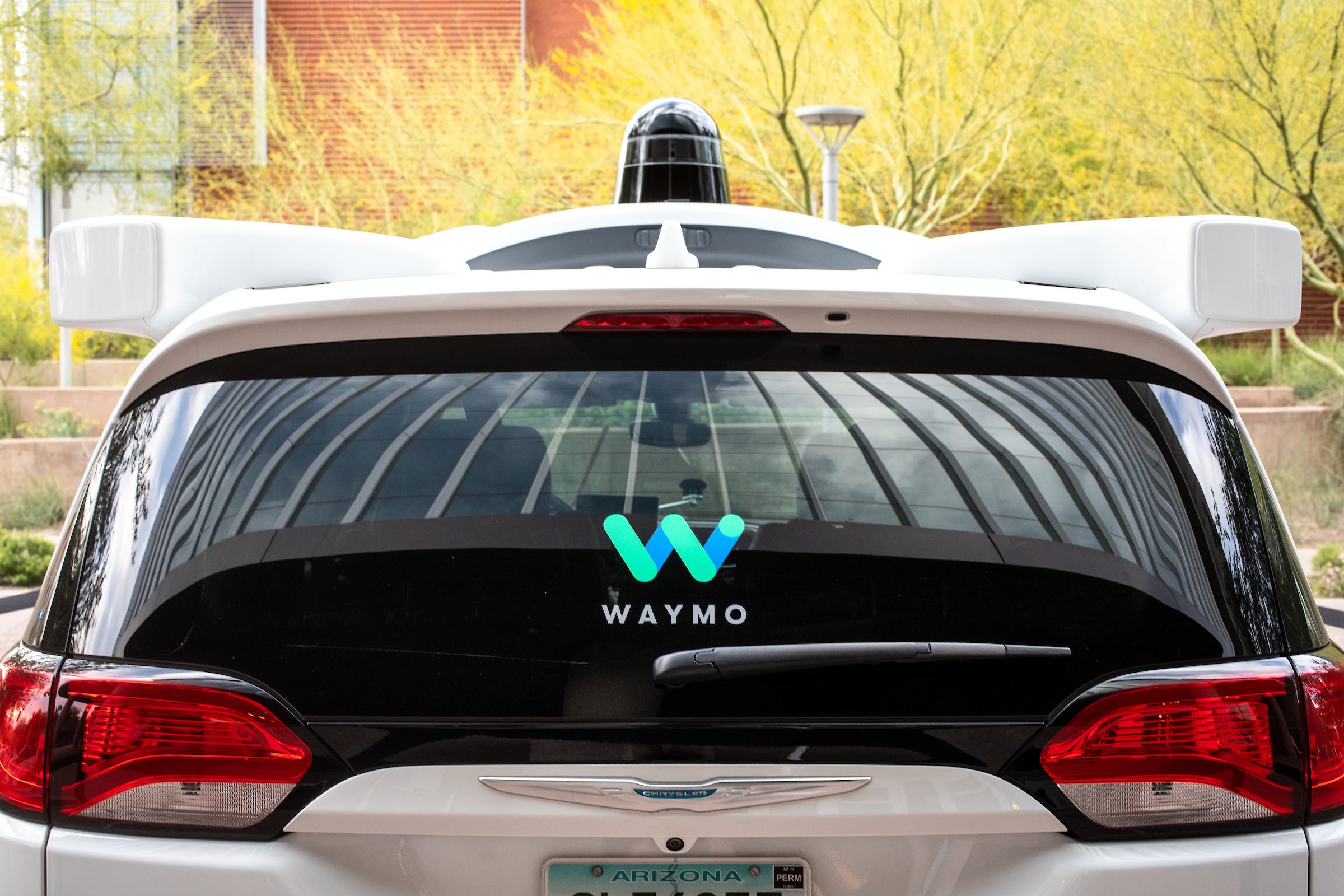In 2017, about 40,000 people died in car accidents, according to the National Safety Council. The vast majority of those accidents were caused by human error.
Self-driving car companies see themselves as the answer to that problem.
A talk at Arizona State University Thursday evening looked into the future of self-driving cars and potential impacts of the technology.
Tekedra Mawakana, chief external officer at Waymo, talked with Andrew Maynard, professor in the School for the Future of Innovation in Society about social and policy-related challenges of developing self-driving car technology.
Mawakana, who leads communications, marketing and public affairs at Waymo, said they aren’t in the car business at all.
“Our goal is to build the world’s most experienced driver,” she said. “We’re not building cars.”
Waymo has been testing its technology in the Valley for a little more than two years. The cars use a combination of many technologies, including lidar and radar, to form a 360-degree picture of the surroundings.
One of Waymo's Chrysler Pacifica hybrid minivans sits on display before "Let’s Talk Self-Driving: A Fireside Conversation" with Waymo’s Tekedra Mawakana and ASU Professor Andrew Maynard. Photo by Charlie Leight/ASU Now
“How does it learn what’s what?” asked Maynard, a leading expert on the socially responsible development of emerging and converging technologies. How does it differentiate a kid dashing across a street from a plastic bag blowing along the road?
The cars measure everything, down to the height of the curb. Critical info is shared across the fleet, anything from what different intersections are like (stop sign? traffic light? crossing guard?) to problem areas to avoid, like an accident scene. The technology also takes note of everything around it, from people to buildings to other cars.
The Valley, with its wide streets and perpetual sunshine, is an easy place to drive, Maynard noted. Is Waymo testing anywhere more challenging?
“We look for climates that test us,” Tekedra said. The company is testing in 24 cities, including snowy Colorado and the rainy Pacific Northwest.
How are backup drivers trained? “Their job is to remain alert,” she said. “There are a lot of humans around our cars who aren’t alert.”
Maynard brought up the fatality in Tempe last March, which occurred when a pedestrian ran out in front of an Uber self-driving vehicle and was killed.
“We are here to prevent that,” Tekedra said. “Days like that remind us of why we’re here.”
She called attention to the fact that despite 40,000 people dying on the nation’s roads each year, Americans don’t treat it as a mass casualty.
“There’s a part of driving that’s unsafe, and we’re comfortable with that,” she said. “These are risks that are worth taking because it’s better than the status quo."
Waymo is formerly the Google Self-Driving Car project — a technology company, not a car company.
“Do you have the institutional know-how?” Maynard asked.
Waymo makes the self-driving tech, not the actual cars, Tekedra said, which are made by Chrysler and other auto companies.
“We’re not actually in the auto industry,” she said.
What will 50 years from now look like? Maynard asked.
Fewer than 1,000 people dying each year in car accidents, and kids not knowing roads used to be dangerous places, Tekedra said.
Top photo: Waymo's Tekedra Mawakana talks with Professor Andrew Maynard about the challenges and opportunities of developing autonomous car technology and its effect on drivers at ASU's Marston Theater on April 11, 2019. Mawakana is the chief external officer and oversees the company's public policy and governmental relations, public affairs, communications, marketing and social policy. Photo by Charlie Leight/ASU Now
More Science and technology

From food crops to cancer clinics: Lessons in extermination resistance
Just as crop-devouring insects evolve to resist pesticides, cancer cells can increase their lethality by developing resistance to treatment. In fact, most deaths from cancer are caused by the…

ASU professor wins NIH Director’s New Innovator Award for research linking gene function to brain structure
Life experiences alter us in many ways, including how we act and our mental and physical health. What we go through can even change how our genes work, how the instructions coded into our DNA are…

ASU postdoctoral researcher leads initiative to support graduate student mental health
Olivia Davis had firsthand experience with anxiety and OCD before she entered grad school. Then, during the pandemic and as a result of the growing pressures of the graduate school environment, she…

